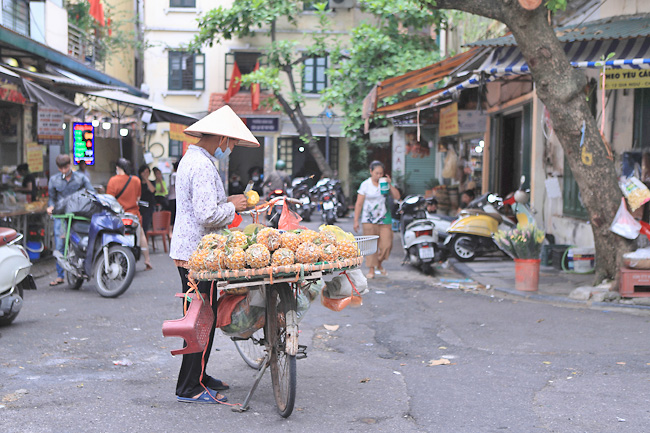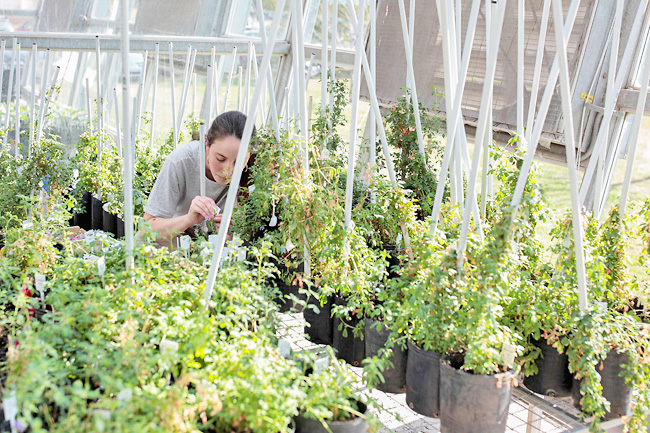Danial Norjidi
Asia-Pacific Economic Cooperation (APEC) economies will jointly pursue cooperation and partnerships to ensure active engagement in supporting food security, said Thailand’s Minister of Agriculture and Cooperatives Dr Chalermchai Sri-on in the Chair’s statement as Chairman of APEC.
The APEC ministers responsible for food security met virtually to exchange views on policy issues related to the current food security crisis and compounding the ongoing effects of the COVID-19 pandemic on Friday.
The chair noted that varying views were expressed on the prevailing situation.
“The meeting expressed its concern on the ongoing COVID-19, current economic challenges, major challenges threatening global and regional food security, including the impacts of economic slowdowns and downturns, climate change, urbanisation, global population growth, poverty, the affordability of healthy and nutritious diets, the COVID-19 pandemic, emerging diseases, trade barriers, export restrictions, increasing input costs, including energy and fertiliser, social inequality, as well as other shocks and stresses to food systems.
“APEC economies also acknowledged that it is time for APEC to sustainably transform our agri-food systems in order to achieve the Roadmap 2030 and align with boarder efforts towards the 2030 Sustainable Development Goal Agenda 2, ending hunger.”


It was shared that APEC economies encourage to empower smallholders, micro, small and medium enterprises (MSMEs), women, youth, and other groups with untapped economic potential as indicated in the Food Security Roadmap Towards 2030 to ensure that agriculture is a viable livelihood that sustainably meets the demand for food and agricultural products.
“We endorse the implementation plan of the Food Security Roadmap Towards 2030 (Implementation Plan), developed in 2022, which is in line with the Putrajaya Vision 2040 and the Aotearoa Plan of Action, for the lasting food security, food safety and improved nutrition for all, as well as for the reduction of food loss and waste in the region by promoting agricultural and food trade, and working towards sustainable resource management in the agriculture sector.”
The statement explains that the Implementation Plan identifies specific actions or initiatives that APEC economies may choose to implement to deliver on the Roadmap 2030 in the areas of digitalisation and innovation, productivity, inclusivity, sustainability, public-private partnerships and smart goals.
Firstly, with regards to supporting food safety and trade facilitation, the chair said, “We recognise the importance of ensuring that food safety measures align with international standards as a component of food security.
“We also realise the significance of producing nutritious food and achieving more sustainable food systems. We support efforts to reduce food loss and waste.
“We encourage to promote market access for smallholder farmers as well as consumers’ access to safe food, and enabling effective regulation of food safety in all sectors to strengthen and support food trade, food security and consumer confidence.”
The statement notes that the ministers recognise the role of trade to ensure global food security, and that they support efforts to ensure the unimpeded global trade of food as well as the stability of the food supply chain.
Secondly, towards improving livelihoods and well-being, the statement said, “We recognise the importance of self-reliance in agriculture for smallholders – including artisanal fisheries and small-scale aquaculture – to produce food for household consumption as well as the promotion of rural development and prosperity for all our people.
“We promote transforming food systems to be more resilient to major food insecurity drivers.
“Efforts towards empowerment, viable livelihoods and resiliency need to consider gender and climate adaptation and mitigation.”
The statement proceeds to note that, in terms of promoting sustainability of natural resources and environment, the ministers support approaches to sustainable and climate resilient agriculture based on local conditions, including through the use of innovative technologies and traditional practices that help reduce land degradation and soil erosion, prevent desertification, optimise water use, promote the conservation and sustainable use of biodiversity, and recovery of both terrestrial and aquatic ecosystems as well as enhance carbon sequestration and lower greenhouse gas emissions.
Fourthly, on enhancing innovation and technology in the agri-food sector, the statement said the ministers recognise the importance of agricultural biotechnology as a tool to enable sustainable agricultural productivity growth essential for food security.
“We encourage APEC economies to utilise risk-proportionate and science-based regulatory frameworks taking into account the economies’ circumstances and priorities to evaluate and approve products of biotechnology, facilitate voluntary technology transfers on mutually agreed terms with appropriate data privacy and intellectual property rights, and raise public awareness in biotechnology innovation.”
They also encouraged the promotion of public-private investment to facilitate the use of innovative technologies for the whole food value chain as well as in the introduction of these newly-developed technologies in particular to start-ups and MSMEs.
“We recognise that both traditional and modern production tools, and emerging digital technologies, are needed to help farmers produce enough to feed a growing global population while reducing their environmental footprint and building climate resilience.”
The statement adds that employing these techniques can accelerate the transition to more sustainable food systems through productivity growth that optimises agricultural sustainability across social, economic, and environmental dimensions.
Regarding a fifth key area, balancing economy, social and environment, the chair said, “We encourage APEC economies to explore the approach of Bio-Circular-Green Economic Model (BCG), and other innovative approaches in supporting the post COVID-19 pandemic economic recovery.
“We acknowledge that there is a no ‘one-size-fits-all’ approach to sustainability, and the BCG Model is one of many comprehensive approaches towards inclusive, balanced and sustainable economic development that emphasises the efficient use of natural resources.”
Touching on the way forward, the meeting’s chair said,“We instruct the Policy Partnership on Food Security (PPFS) to facilitate the individual and collective actions conducted by APEC members under the Implementation Plan of the Roadmap 2030, and to report its progress and complete a review of it in 2025.”






